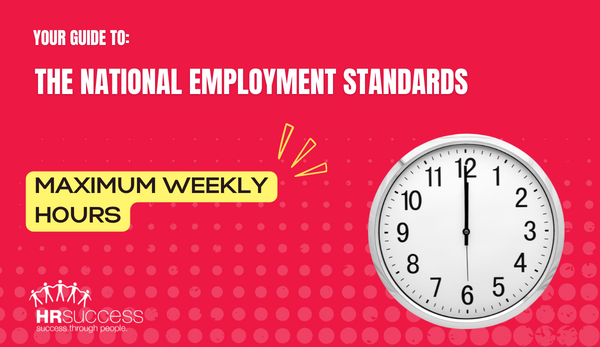In this series of articles over coming months, we’ll cover off the 11 National Employment Standards, or NES. These are the minimum terms of employment that apply to all workers in Australia that are part of the National Workplace Relations System (which is the vast majority of workers), whether they are covered by an Award or not.
The 11 minimum entitlements of the NES are:
- Maximum weekly hours
- Requests for flexible working arrangements
- Offers and requests to convert from casual to permanent employment
- Parental leave and related entitlements
- Annual leave
- Personal/carer’s leave, compassionate leave and unpaid family and domestic violence leave
- Community service leave
- Long service leave
- Public holidays
- Notice of termination and redundancy pay
- Fair Work Information Statement and Casual Employment Information Statement
Whilst employers and employees can add to or supplement the NES, they cannot provide for or negotiate conditions (even if both parties agree) that are less than the NES (and, in terms of payment, the National Minimum Wage).
NES #1: Maximum hours of work
The first NES item we’ll take a look at is Maximum Weekly Hours.
Under the NES, an employer must not request or require an employee to work more than the following hours of work in a given week, unless the additional hours are reasonable:
- for a full-time employee, 38 hours or
- for an employee other than a full-time employee, the lesser of:
- 38 hours or
- the employee’s ordinary hours of work in a week.
As you can see, there are limits to the hours you can require a person to work, irrespective of how much you pay them or what their employment contract might say. That said, and as mentioned above, the NES does make an allowance for “reasonable” additional hours.
So, what does “reasonable additional hours” mean?
In determining whether additional hours are reasonable or unreasonable, matters such as the following need to be taken into account:
- any risk to employee health and safety
- the employee’s personal circumstances, including family responsibilities
- the needs of the business, and usual patterns of work for the relevant industry
- whether the employee is entitled to receive overtime payments, penalty rates or other compensation for working additional hours
- the level of remuneration paid (the more you pay the role, the more likely it is that additional hours might be considered reasonable)
- the amount of notice given to the employee that additional hours might be required
- the nature of the employee’s role and the employee’s level of responsibility (the more senior the role, the more likely it is that additional hours might be deemed reasonable)
- whether the additional hours are in accordance with any averaging provisions included in an award or agreement that is applicable to the employee, or an averaging arrangement agreed to by an employer and an award/agreement-free employee, and
- any other relevant matter.
What about averaging hours?
The NES (and, indeed, a number of Modern Awards) make an allowance for hours to be averaged – usually over a 2 or 4 week period, though sometimes this can be longer. What this means is that you can, for example, roster your employees to work 42 hours in one week and 34 hours in the second week, which averages out to 38 per week. You should, however, be careful to check specific wording in any applicable Award or agreement before progressing down this path.
It’s important to make sure that employment contracts outline the hours of work, including any requirement for reasonable additional hours, and that this is consistent with both the NES and any applicable Award or Agreement.
If you’re not sure if your contracts fully reflect the NES requirements, please give us a call, as penalties in excess of $13,000 (for an individual) or $66,000 (for a company) can apply for a contravention of the NES!
This article provides general information only and is not legal or formal advice. To the best of our knowledge, information is correct at the time of writing. If you need assistance that takes account of the specific circumstances of your business, let us know.

